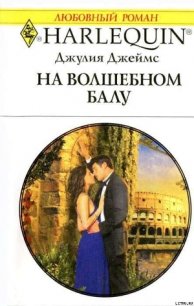Julia Ward Howe - Richards Laura E. (читать книги онлайн полностью без сокращений txt) 📗
The correspondence between Governor Ward and General Washington has been preserved. In one letter the latter says: "I think, should occasion offer, I shall be able to give you a good account of your son, as he seems a sensible, well-informed young man."
This young man was Samuel Ward, Lieutenant-Colonel of the First Rhode Island Regiment, and our mother's grandfather.[1]
In Trumbull's painting of the Attack on Quebec in 1776, there is a portrait of Lieutenant-Colonel Ward, a young, active figure with sword uplifted. His life was full of stirring incident. In 1775 he received his commission as Captain, and was one of two hundred and fifty of the Rhode Island troops who volunteered to join Benedict Arnold's command of eleven hundred men, ordered to advance by way of the Kennebec River to reinforce General Montgomery at Quebec. In a letter to his family, dated Point-aux-Trembles, November 26, 1775, Captain Ward says: "We were thirty days in the wilderness, that none but savages ever attempted to pass. We marched a hundred miles upon shore with only three days' provisions, waded over three rapid rivers, marched through snow and ice barefoot, passed over the St. Lawrence where it was guarded by the enemy's frigates, and are now resting about twenty-four miles from the city to recruit our worn-out natures. General Montgomery intends to join us immediately, so that we have a winter's campaign before us. But I trust we shall have the glory of taking Quebec!"
The young soldier's hopes were vain. He was taken prisoner with many of his men while gallantly defending a difficult position, and spent a year in prison. On his release he rejoined the army of Washington and fought through the greater part of the Revolution, rising to the rank of Lieutenant-Colonel. He was at Peekskill, Valley Forge, and Red Bank, and wrote the official account of the last-named battle, which may be found in Washington's correspondence.
During the terrible winter at Valley Forge, Lieutenant-Colonel Ward obtained a month's furlough, wooed and married his cousin, Ph?be Greene (daughter of Governor William Greene, of Rhode Island, and of the beautiful Catherine Ray, [2] of Block Island), and returned to the snows and starvation of the winter camp. Our mother was very proud of her great-grandmother Catherine's memory, treasured her rat-tail spoons and her wedding stockings of orange silk, and was fond of telling how Benjamin Franklin admired and corresponded with her. Some of Franklin's letters have been preserved. He speaks of his wife as the "old lady," but says he has got so used to her faults that they are like his own—he does not recognize them any more. In one letter he gives the following advice to the lovely Catherine: "Kill no more Pigeons than you can eat. Go constantly to meeting or to church—till you get a good husband; then stay at home and nurse the children and live like a Christian."
Some years after the Revolution, Colonel Ward was in Paris on a business errand. He kept a record of his stay there in a parchment pocket-book, where among technical entries are found brief comments on matters of general interest. One day the Colonel tells of a dinner party where he met Vergniaud and other prominent revolutionists. He was surprised to find them such plain men; "yet were they exceeding warm." On December 29,1792, he notes: "Dined with Gouverneur Morris. Served upon plate—good wines—his Kitchen neither french or English, but between both. Servants french, apartments good.... I have visited the halls of painting and sculpture at the Louvre. The peices [sic] are all called chef d'?uvres by connoisseurs. The oldest are thought the best, I cannot tell why, though some of the old peices are very good. Milo riving the oak is good...."
He went to the theatre, and observed that the features which appeared to him most objectionable were specially applauded by the audience.
Briefly, amid items of the sale of land, he thus notes the execution of Louis XVI:—
"January 15th. The convention has this day decided upon two questions on the King; one that he was guilty, another that the question should not be sent to the people.
"January 17th. The convention up all night upon the question of the King's sentence. At eleven this night the question was determined—the sentence of death was pronounced. 366 death—319 seclusion or banishment—36 various—majority of 5 absolute—the King caused an appeal to be made to the people, which was not allowed; thus the convention have been the accusers, the judges, and will be the executors of their own sentence—this will cause a great degree of astonishment in America....
"January 21st. Went to the Pont Royal to pass it at nine o'clock. Guards prevented me from going over. I had engaged to pass this day, which is one of horror, at Versailles, with Mr. Morris. The King was beheaded at eleven o'clock. Guards, at an early hour, took possession of the Place Louis XV, and were posted in each avenue. The most profound peace prevailed. Those who had feeling lamented in secret in their houses, or had left town. Others showed the same levity or barbarous indifference as on former occasions. Hichborn, Henderson, and Johnson went to see the execution, for which, as an American, I was sorry. The King desired to speak. He had only time to say he was innocent, and forgave his enemies. He behaved with the fortitude of a martyr. Santerre ordered the [executioner] to dispatch him. At twelve the streets were again all open."
There is a tradition that when Colonel Ward quitted Paris, with a party of friends, the carriage was driven by a disguised nobleman, who thus escaped the guillotine.
Our mother remembered him as a "gentleman advanced in years, with courtly manner and mild blue eyes, which were, in spite of their mildness, very observing."
She inherited many traits from the Wards, among them a force and integrity of purpose, a strength of character, and a certain business instinct which sometimes cropped up when least expected, and which caused some of her family to call her the "banker's daughter."
Those were also solid qualities which she inherited from the Rhode Island Greenes. Greenes of Warwick, Greenes of East Greenwich; all through Colonial and Revolutionary history we find their names. Sturdy, active, patriotic men: Generals, Colonels, and Governors of "Rhode Island and Providence Plantations," chief among them Governor William Greene, the "War Governor," and General Nathanael Greene of glorious memory.
Our liveliest association with the name of Greene is the memory of Mrs. Nancy Greene, first cousin of our grandfather Ward and daughter-in-law of the General who died in Middletown, Rhode Island, in 1886, at the age of one hundred and two. This lady was dear to our mother as the one remaining link with her father's generation. A visit to "Cousin Nancy" was one of her great pleasures, and we children were happy if we were allowed to accompany her. The old lady sat erect and dignified in her straight-backed chair, and the two discoursed at length of days gone by. To Cousin Nancy "Julia" was always young, though the "Battle Hymn of the Republic" was already written when the old lady charged her to "cultivate a literary taste." On another occasion—it was one of the later visits—she said with emphasis, "Julia, do not allow yourself to grow old! When you feel that you cannot do a thing, get up and do it!" Julia never forgot this advice.
Cousin Nancy never read a novel in her life, as she announced with pride. She wished to read the "Annals of the Schonberg-Cotta Family," but, finding it to be a work of fiction, decided not to break her rule. She was a fond and pious mother; when her son needed chastisement, she would pray over him so long that he would cry out, "Mother, it is time to begin whipping!"




